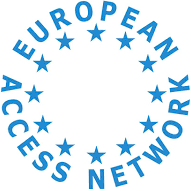Access, Equity, Diversity, Inclusion – The four pillars of the EAN
The European Access Network encourages wider access to higher education for those who are currently under-represented, whether for reasons of gender, ethnic origin, nationality, age, disability, family background, vocational training, geographic location, or earlier educational disadvantage. The EAN is the only European-wide, non-governmental organisation for widening participation in higher education. It is organised for educational purposes and operates under English Law. Membership is open to all those with an interest in widening access.
The EAN’s objectives are:
- to promote effective policies and negotiate resources for wider participation in higher education
- to undertake collaborative research and development programmes on access issues
- to share information on, and provide mutual support for, access developments
- to co-operate with other international and national bodies to promote wider participation
- to analyse access philosophy within and between member states
- to share pedagogical strategies and multi-cultural curriculum approaches
- to explore professional and political issues which promote wider participation
- to encourage international exchanges among access students and staff
EAN Annual Conference
The EAN annual conference represents a unique international experience of diversity in action. Hosted each year by a different member institution or organisation in Europe, the conference brings together policy-makers, academics, practitioners, researchers, and administrators from around the world to address key issues in access and widening participation, diversity and inclusion. It also engages the participation of students, student support services, student organisations and employers.
Our annual conference provides a platform and opportunity for those committed to equity, diversity and inclusion to discuss and debate topical issues, learn from one another, develop initiatives and make new European and international contacts. In particular it aims:
- To stimulate European and international collaboration to widen access and participation
- To share experiences and promote good practice in creating an inclusive higher education
- To disseminate research findings to a wider audience
- To contribute to the development of equitable tertiary education systems in Europe and beyond
